In Denver before Jokic, joined Partizan over Red Star, now a businessman: "You don't say no to that"
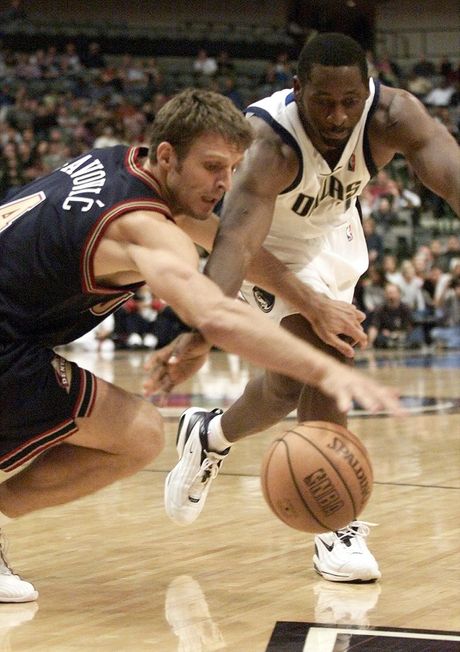
Predrag Savovic may not be so well known to basketball fans, he may be known to those most passionate fans of the "magic game under the hoops" - but he is a man who had a very good career as a player.
However, what he did after his career left a much bigger mark in the basketball world.
Savovic was born in Pula, but grew up in Herceg Novi, where he started training with Primorje.
He played as a shooting guard, and his performances were noticed, so as a 17-year-old, in 1993, he joined Belgrade's Partizan, at that time the European champion, and played for the first team under coach Zeljko Lukajic.
Later, his path led him through Beovuk, Sabac, the University of Hawaii, all the way to the Denver Nuggets and the NBA League.
In front of you is an interesting story about how a boy from Herceg Novi reached the NBA, and then Spain, where he achieved greater success as the director of a Spanish top tier club.
- Your life and basketballing path is very interesting?
- I started in Primorje a little earlier than one usually starts, with coach Milan Dabovic, and then I continued under the guidance of coach Kovacevic. That 1992/93 season, we played former Yugoslavia's first B league and then in the summer of 1993, after some good games, I received invitations from Red Star and Partizan. And I choose Partizan.
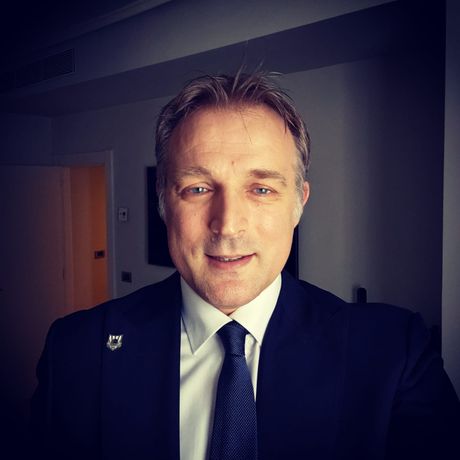
- Why Partizan, and what was decisive?
- Maybe because there was already one Savovic in Partizan (Milenko Savovic) and a little bit because of the euphoria after the conquest of Europe. I was there for a year, and there were Brkic, Beric, Sretenovic, Rebraca, Stevanovic, Koprivica... a good team.
- You came as a cadet. Did you train with the first team?
- Not only did I trained, but I played at the age of 17 for Partizan's first team. Not only me but also Pedja Drobnjak, especially in the semifinals of the playoffs against Profikolor. There were also upcoming kids like me, Aleksandar Glintic, Vesa Petrovic. On the other hand, there was Pedja Stojakovic in Red Star at the time.
- Did you play against Stojakovic?
- Of course, especially in those younger categories, as juniors. There was a tournament for kids then, "McDonald's Junior" where we all played, Stojakovic was in Red Star, Srdjan Jovanovic, Milan Reljic, and I, Drobnjak in Partizan. The memories of that are fantastic, it was a wonderful time. Afterwards, I was in Beovuk, with Glintic, Milojevic, Askrabic, Slobodan Sljivancanin, we trained a lot and played as a family. A lot of these guys are in other professions now, but we stayed well in touch.
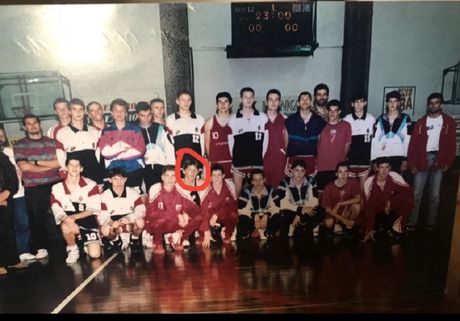
- Still, you had to leave Belgrade as a 19-year-old?
- Yes, it was the season in the team of Iva Zorka Sabac, where I played with the legendary Mijail Grusanovic , a great athlete and a great man. It was an excellent experience. We had a great season. But, due to financial problems, it was all shaky. I decided not to stay in Yugoslavia. So in 1997 I went to America. I was at the University of Alabama in Birmingham, with Pedja Materic who is now an agent, and Igor Nikolic who is a top engineer in America.
- From there, I went to Los Angeles in search of a little better quality, where I lived for a while with some friends who run basketball camps and work with the media and on the presentation of players. I worked for them at the camp where the coach of the University of Hawaii saw me and asked me to join them. I spent the best years of my life studying and playing there. I was in the same team with Carl English, a member of the Canadian national team, who later played for many European clubs. There I graduated from college, majoring in international business, and enrolled in a law school, and then came an invitation that one doesn't not turn down.
- I thought I would continue my education, but Denver invited me and I decided to play basketball professionally. It’s every player’s dream to play in the NBA. Either that or school. I worked the previous five years to get to the NBA and it worked out in the end.
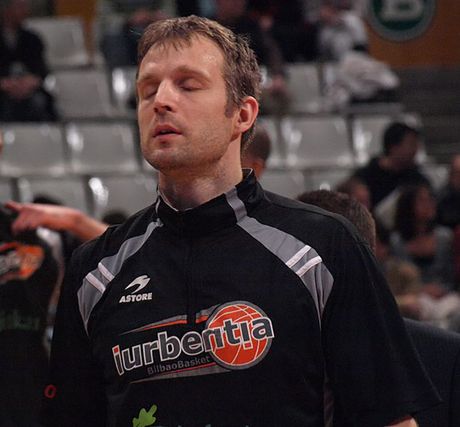
- Still, you only stayed one season, why such a short period of time?
- Injuries started, I was a little unlucky, so I was only there for that short period, but it was a wonderful experience to be a part of that organization. I returned to Charleroi with Bora Vucevic after a season in Europe. However, I also suffered injuries there and after one season I went to Bilbao where I found a new home. I played there for five seasons. I stayed there and ended my career because I would get injured often. When I retired, I studied for a master's degree in Spain and later became the president and director of the club. I am the only foreigner in Spanish basketball who was ever the director and president of a basketball club. Zoran Savic was in Barcelona, but he was the sporting director, not the classic director of a club.
Predrag Savovic 🇷🇸 of the @nuggets poses during the NBA rookie photo shoot at St. Peter's Prep on August 4, 2002 in Jersey City, New Jersey. pic.twitter.com/X6JVhY8LBl— NBA Serbia (@NBASrbija) May 14, 2020
- That's when your business career in basketball starts, what are all the things you've managed to do with Bilbao?
- I've been here for 15 years, and we have had a lot of success. When I came to play, they were promoted to the first league for the first time and then the club started to come together. Little by little, we developed and grew. The atmosphere developed and after that we were in the first league for the next 10 years until the year before last, when we were relegated.
- However, in the 2010/11 season, when I became the president and director of the club, we had the best season. We played the playoff final against Barcelona, we knocked out Real Madrid. We had a good team led by Raul Lopez, and then in 2012 we played in the EuroLeague. Then, for the first time, we managed to win one game against CSKA in the quarterfinals of the EuroLeague playoffs. Maybe we could have won another but we were unlucky, and even the refereeing criteria was a little on the side of the Russian team. Those were the biggest successes of the team. We have excellent support from the city and the sponsors. We managed to build an arena for 10,000 people, which cost 60 million euros.
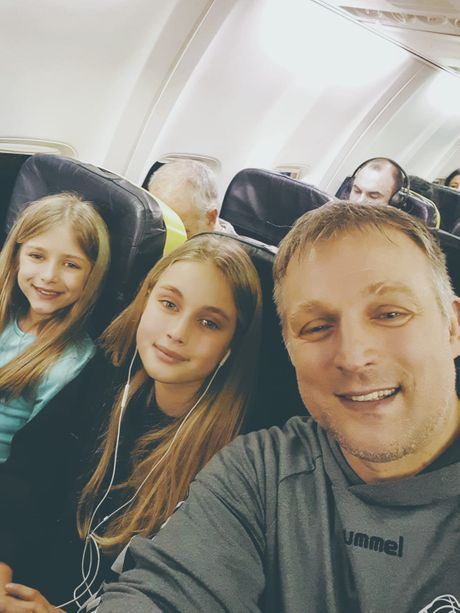
- Otherwise, we are one of the few clubs in Europe that played the NBA tour in 2013 with the 76ers in front of 15,000 people in Bilbao. The match was broadcast in more than 160 countries. In those years, we had over 8,700 people come to every game. Already in 2013, we were vice-champions of the EuroCup, where we got defeated in the final by Lokomotiva from Krasnodar. That's when the decline of the club began, because we did not manage to win the EuroCup and enter the Euroleague... The restructuring of the club began with smaller investments from 2014 to 2016. When we fixed it and returned it to a level, I left.
- The next phase of life was very interesting in London, what did you manage to do there?
- In 2016, I went to London to develop the British basketball league with our partners. I was there for a year and after that Zaragoza called me in 2017 to help. We managed to bring the club to ane expected level. After two seasons, in 2019, I was invited and returned to Bilbao. The club is now respectable and profitable. For example, this season we renewed 70% of season tickets without a single visit due to this situation. The club has a strong connection with the fans, it is working on it and they are helping the club.
- Let's go back to Denver for a little bit, you were the second player from these parts to play there, before Nikola Jokic?
- Yes, Rastko Cvetkovic was there before me. At that time, the Nuggets were in a renaissance phase. We were all young in the team, so we were the least experienced, and the result was such that we were the last. I couldn't shine due to injuries, but I was the last player to be eliminated from the team at the beginning of the next season. A great experience, to be a member of that league where in the end, not everyone can play.
- How could Herceg Novi, such a small town, produce so many NBA players? Aleksandar Cico Radojevic played there as well. If we count women's basketball then that's three because Ana Dabovic played for WNBA
- That's right, I think it's the city with the most NBA players per capita. A real sporting basketball town where the brothers Subotic, Bijelic, then my brother Boban and I, the sisters Dabovic grew up.
- Herceg Novi is also known for the famous open Korac court, where terrific basketball tournaments were played?
- Yes, that's right, a film could be made about that. During the summer, Sale Obradovic, Nenad Markovic, the legendary Sucevic also came here, fantastic basketball was played. Afterwards, the war, the sanctions began and later it all died down.
- You said that Hawaii was a great experience?
- Yes, one of the most beautiful periods of my career and life. How we played and mowed down everything in front of us. By the way, a group of people from the former Yugoslavia live there, so we'd bake kebabs in the park every weekend. A lot of people who came there to study stayed to live. For example, Nesa Subotic, who played for Red Star, we met in Hawaii, we had a good time, now he is a successful businessman in California.
- What are your further plans?
- My wish is for a serious league to be created in Britain. That market is untapped, and otherwise the second in terms of sports consumption in the world after America. We have been working on this for seven to eight years. By the way, my daughters Magdalena (13) and Eleonora (10) also live there, and I'm saying hello to them in this way because we will not be able to see each other until the end of the year. Magdalena also trains basketball.
(Dragutin Stojmenovic)
Video: Stojisavljević: "Na raščišćavanju snega angažovano 380 vozila i 2.180 radnika po smeni"
Telegraf.rs zadržava sva prava nad sadržajem. Za preuzimanje sadržaja pogledajte uputstva na stranici Uslovi korišćenja.

